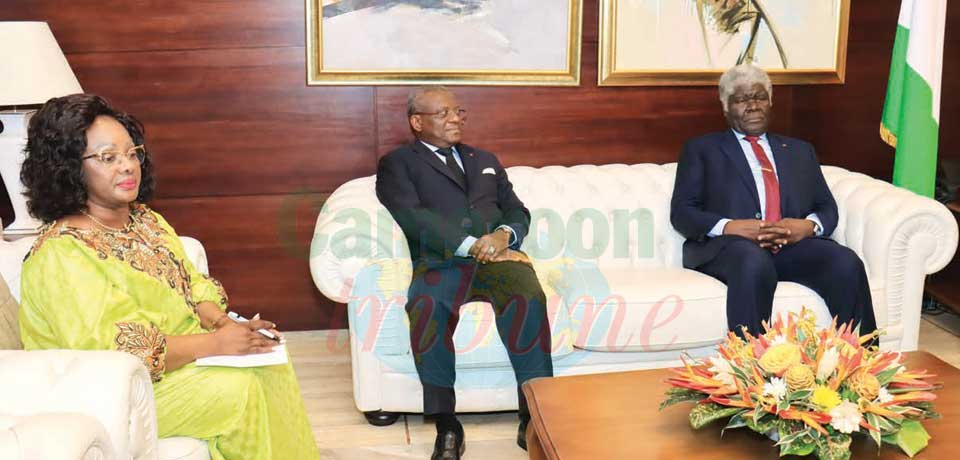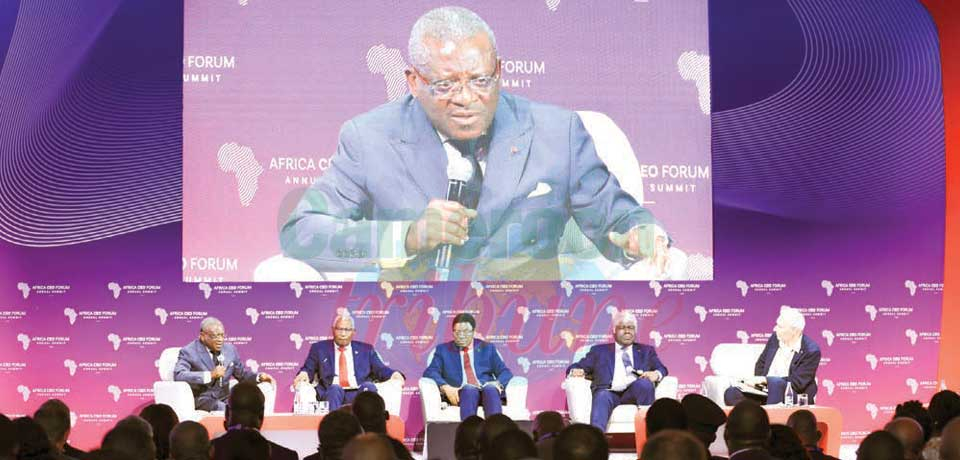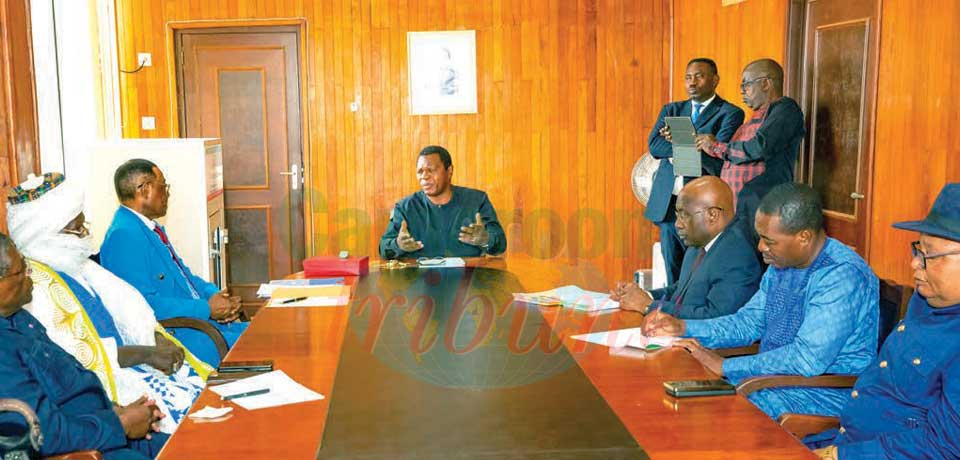Below is the final communiqué of the Cameroon Business Forum that held in Douala on March 13, 2017.
“The Prime Minister, Head of Government, His Excellency Philemon Yang, today Monday 13 March 2017, as from 9:00 a.m. in the Conference Hall of SAWA Hotel in Douala, chaired the eighth session of Cameroon Business Forum (CBF), on the theme: “Boosting economic competitiveness through the facilitation of external trade”.
This important meeting was attended by Members of Government, Parliamentarians, as well as the International Finance Corporation’s Regional Representative for Africa and representatives of the private sector.
The opening ceremony was marked by three speeches, following the welcome address of the Government Delegate to the Douala City Council.
Speaking on behalf of development partners, the International Finance Corporation’s Regional Representative for Central Africa applauded Government’s constant efforts to establish a conducive and more attractive business environment. She indicated that the results obtained reflect Government’s determination to intensify actions to modernize, simplify and facilitate procedures. Lastly, she advocated a quick implementation of reforms having a high impact on private entrepreneurship before reiterating the readiness of donors to lend their support to Government.
Speaking on behalf of the private sector, the President of the Chamber of Commerce, Industry, Mines and Crafts dwelled on reforms deemed priority to boost the competitiveness of the Cameroonian economy. He mentioned: (i) the computerization of the trade register; (ii) land reform to facilitate investors’ access to land mostly in agro-industry; (iii) the opening of an earmarked account to refund VAT credits; (iv) the opening of electronic payment points; (v) the creation of trade courts as well as the dematerialization of public procurement procedures.
In his opening speech, the Prime Minister indicated that the improvement of the business climate is one of the privileged thrusts for stimulating economic growth and raise the standard of living of the population. He recalled that due to the external shocks experienced by Central African States, the President of Republic of Cameroon, His Excellency Paul BIYA had stressed that the success of the strategy adopted on 23 December 2016 by CEMAC Heads of State depended on an improvement of the business climate in CEMAC countries. In that perspective, the Government of Cameroon has implemented important reforms, the most recent being (i) the shortening of the statutory time of issuance of building permits; (ii) the OHADA reconciliation procedure for enterprises experiencing financial difficulties; (iii) the promulgation of the law fixing minimum share capital and the terms and conditions of recourse to the services of notaries during the creation of limited liability companies. To conclude, the Head of Government said it was now up to business operators to take full advantage of the measures in place and work to create more sustainable businesses.
At the end of this phase, participants listened to the progress report of Cameroon Business Forum, presented by the Permanent Secretary. He mainly revealed that recommendations adopted during meetings in 2016 were implemented at a rate of 75%. Concerning particularly the 2016 Doing Business Report, he noted a relative improvement of Cameroon’s ranking, specifying that the application of measures recently adopted by Government will help to further improve this ranking in the coming years.
Proceedings continued with presentations by Members of Government and representatives of the private sector.
Mrs Kate FOTSO, business leader, pointed out that the major constraints that hinder external trade concern the complexity of the tax system, the dearth of infrastructure and the ineffectiveness of certain external trade facilitation levers. As solutions, she recommended better protection of the economic space and exports promotion.
The representative of the Minister for Trade presented the main innovations in the facilitation of cross-border trade contained in the Law of 18 April 2016 governing external trade. He mentioned inter alia: (i) the establishment of a national database of importers and exporters; (ii) the precise determination of different types of control to which import and export operations can be subjected; (iii) the creation of a National External Trade Council, to counter dumping, subsidies and massive imports; (iv) and the consecration of the principle of dematerialization of external trade through the creation of a single digital platform.
In the same vein, the Director-General of the One-Stop Shop of External Trade Operations stressed that the dematerialization of external trade procedures is an absolute necessity for a more effective management of commercial activities. Actions carried out in that direction are seen in: (i) the interconnection of Government departments; (ii) the creation of a single form of operations; (iii) the payment of fees, taxes and dues through digital channels as well as the reform of the electronic waybill. He ...
Cet article complet est réservé aux abonnés
Déjà abonné ? Identifiez-vous >
Accédez en illimité à Cameroon Tribune Digital à partir de 26250 FCFA
Je M'abonne1 minute suffit pour vous abonner à Cameroon Tribune Digital !
- Votre numéro spécial cameroon-tribune en version numérique
- Des encarts
- Des appels d'offres exclusives
- D'avant-première (accès 24h avant la publication)
- Des éditions consultables sur tous supports (smartphone, tablettes, PC)














Commentaires